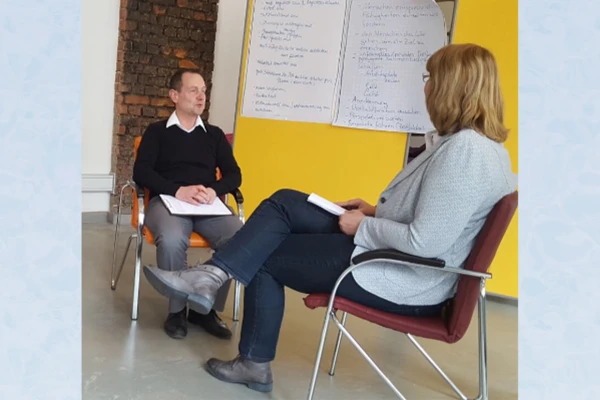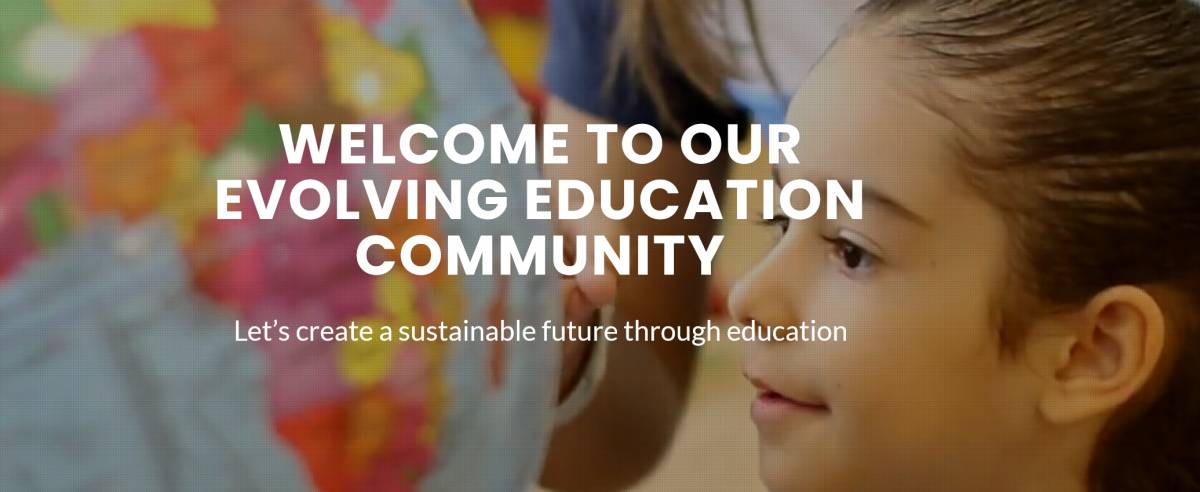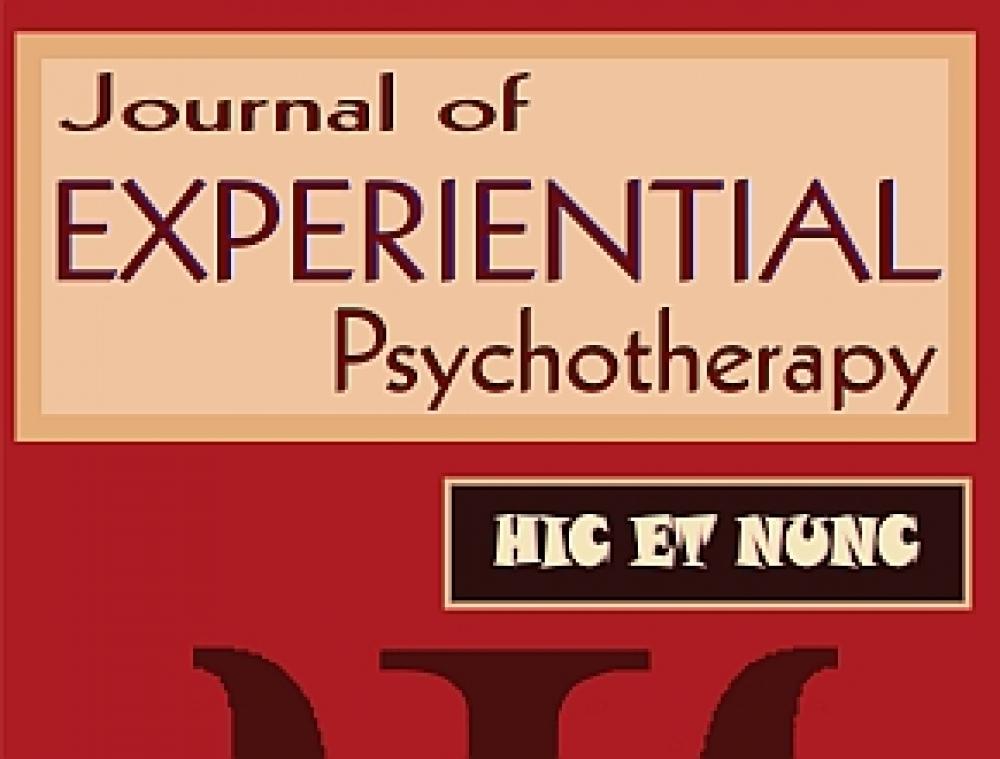About Us / Resources / Articles
Tools for Educators
About Us / Resources / Articles

Gudrun Heinrichmeyer
"NLP Communication, IN" training by trainer Gudrun Heinrichmeyer in Germany
Read more
The roots of the book, Evolving Education, emerged from during an online conference of practitioners from the fields of NLP, hypnosis, positive psychology, mindfulness, systemic constellation work, and related areas. All of the practitioners brought a rich set of techniques and experience from working in coaching, management, education, human resources, and many other areas of human life that recognize the importance of growth.
At the conference, there were many useful sessions and one of them that attracted my interest was one on education led by Lilianna Kupaj. The goal of the session was to discuss how we could bring the expertise and experience from our various areas to help education in all its forms. We had a wonderful discussion, and afterwards I typed it up as a basic document of areas that we had discussed and shared it with the group.
Gradually, within the framework of the WeEvolve group, we started to hold meetings about how we could take these ideas forward. Because of different time zones and geographical locations, and of course because of the ongoing Covid pandemic, we were unable to meet in person and our discussions took place in online meetings that were both enjoyable and sometimes frustrating as we brought our many rich and diverse ideas into line with the overall organising purpose of helping education to evolve.
Through our discussions, it became clear that education around the world is still being constrained by ways of thinking that have not kept up with the needs of the modern world. The modern conception of students neatly lined up in rows of desks listening to a teacher dispensing knowledge is a remnant of the Industrial Revolution and is proving increasingly unsuitable to the needs of today’s world. Students in the classroom are apathetic and unmotivated because they know how to get knowledge quickly—they can pick up the smartphone in their hand and call up more relevant and more recent knowledge far more quickly than a teacher can deliver it. Yet, this is not to say that schools are not necessary. The Irish poet, William Butler Yeats, said it beautifully in the words, “Education is not the filling of a pail, but the lighting of a fire,” and as educators and supporters of education, our job is to help education evolve by lighting those fires in the hearts of learners all around the world.
In February 2021, we finally produced Volume 1 of Evolving Education and shared it with the 7,000 members of the WeEvolve group who share it forward with the many teachers and educators in their networks. Volume 2 will be published at the end of 2021, and we hope to continue spreading useful ideas in this way so that we can reach a wide audience of educators and eventually have a positive influence on education by bringing the techniques and expertise from our own areas. Volume one and subsequent volumes are all being distributed online and are available free of charge to all interested.
It is probably useful at this point to say a little bit about the various areas with which we are involved because the expertise and techniques of evolving education emerged from these areas. Below, I have given a brief description of each field and a link to the association which can offer more information and resources.
IN - International Association of NLP Institutes: www.nlp-institutes.net
NLP stands for neuro-linguistic programming, a field that looks at how our behaviours are shaped by our beliefs. NLP suggests that learning can be enhanced through modelling—the taking on of the cognitive and behavioural features of successful performers. In education, NLP is interested in how both successful teachers and successful learners get their results. NLP has studied how teacher language can be used to influence beliefs, the learning strategies that successful students use, and much more than can be usefully applied to the field of education.
WHO - World Hypnosis Organization: www.world-hypnosis.org
If you are not yet familiar with hypnosis, it may seem to be a strange addition to the classroom, but education and hypnosis share a lot in common, especially the use of language to facilitate learning, change, and developing richer perspectives on the world. In particular, the work of Milton Erickson in indirect hypnosis can be very useful for teachers in showing them how to more effectively motivate students and support their learning.
WSCO - World Systemic Constellation Organization: www.wsco.online
Systemic Constellation suggests that the present-day problems and difficulties that arise in any situation, including classrooms, may be influenced by traumas suffered in previous generations of the family or by wider elements of the societal system. It offers wider perspective for thinking about learning.
Pos-Psy - Positive Psychology Organisation: https://pospsy.org
Positive Psychology has developed rapidly since it was first brought to the attention of the wider world in about the year by Martin Seligman. All teachers recognize that learning happens best when students are happily engaged in a task, yet so little focus has been placed on creating the conditions for that happiness, and too often schools can instead be places of fear and boredom. The work of Seligman and others has led to the field of Positive Education and has shown how simple interventions like a gratitude diary or highlighting of recent positive events can make a real difference to students’ learning.
In-Me - Institutes for Mindfulness Evolving: www.in-me.world
Mindfulness used to be an esoteric Eastern discipline, but now it has become mainstream, and there are books and seminars coming out of world-class companies like Google which suggest that mindfulness can promote better attention skills, better learning, and less stress. Mindfulness has much to offer education through simple short techniques that can be used in any classroom.
ICI - International Association of Coaching Institutes: www.coaching-institutes.net
Coaching is a very practical discipline. It aims to get people from where they are now towards the place that they want to be. In this sense, it is exactly the same as education. Coaching is usually held one-to-one and has far more flexibility, but in the changing modern world, these are exactly the kind of attributes that we want to bring into education. Coaching has a wealth of techniques to share with teachers.
We believe that education is one of the most important jobs in the world, and that it is through education that humanity can survive and thrive and live together successfully. We value and appreciate the very important work educators do for our children and youth, for their wellbeing and for the sustainable future of all humanity, and the Evolving Education series aims to utilize our knowledge and expertise in our own fields to make a contribution to helping education evolve and move forward.
There are five sections in evolving education in each volume. We came up with these sections after many discussions between us and deciding which were the most important areas to bring into a balanced modern education. Each section is represented by a graphic icon which provides a visual anchor for the teacher throughout the Evolving Education series.
Increase Well-Being
Increasing well-being throughout life is clearly a prime purpose of education. Dewey saw the purpose of education as “forming skilled powers of thinking”. Seligman sees positive education as “the combination of traditional education principles with the study of happiness and wellbeing.”
Support Learning
Learning should be at the heart of all educational systems. There are clearly other purposes to formal education such as socializing people into the mindset of the nation or ensuring law and order through agreed learned norms, but these other goals should never allow us to forget that education is about learning. By keeping learning at the center of all education, we can ensure that the children and young adults of today learn the necessary skills to survive and thrive in a challenging fast-changing environment, and more importantly still, that they learn to keep learning all through their lives.
Motivate with Words
Talking to teachers from around the world, there is one sad common feature that emerges time and time again. Students are not as motivated to learn as we would like. It seems strange, doesn’t it—we have set up these beautiful buildings and facilities and provided teachers and textbooks, and more, and yet… many students seem apathetic. Part of the reason for this lack of motivation is because students have so many other things that seem so much more entertaining and interesting than the words of their teachers. Take a few hours to look at any particular topic on YouTube, and you will find many well-produced videos which use images, sound, and other effective techniques to explain a suhject well. Teachers in the classroom have the advantage that their students have to attend, but in order to make their students motivated, the average teacher needs to make much better use of language to reach both the minds and hearts of the learners in front of them.
Improve Social Skills
Dewey suggests that the purpose of education is “the sharing of social experience so that children become integrated into the democratic community.” While this is clearly not the only purpose of education, the socialization aspect of school is hugely important. We have seen that during the Covid pandemic when large numbers of students suffered from depression and anxiety because they were not attending school. Simply providing a place to hang out and meet friends and keep young people out of trouble is useful, but schools can provide so much more. We can help students to improve their social skills, help them to understand other people, express their feelings in more useful ways—all skills that will help them in their personal and professional lives in the future.
Develop Global Skills
The world has changed enormously since the 19th century, yet schools still look pretty much the same. Neat rows of desks of students, lined up one after the other. Sometimes, there is a fancy projector in the front, but smart phones are generally still prohibited. Formal education has not yet fully taken account of the irreversible fact that students are now part of a real-time active global community. Facebook, Instagram, Twitter and other social media posts go viral within minutes, connecting people all over the world. On a bigger scale, problems like climate change and international peace can not be solved at a local level. The children who sit in our classrooms today are going to be tomorrow’s world travellers, working in international teams to solve international challenges. Global skills include the ability to take on multiple perspectives, to be culturally aware, and to work with people of all ages and all nationalities and all backgrounds. Education needs to help these students to develop these global skills.
Evolving Education is subtitled Tools for Teachers. And our goal is to make these really practical tools. We know that teachers are busy and don’t have time to read through long explanations and varying formats.
So in order to make the tools in the books as accessible and uniform as possible for teachers, we decided to follow a fixed format for every activity. Having been a teacher and publisher of textbooks for almost 30 years, I know exactly how much teachers and students appreciate the uniformity that is provided in most textbooks. By having the same sections for every activity, both teachers and students can get used to the format and immediately immerse themselves in the content of the activity.
We decided to use a format that was developed by Bernie McCarthy which is rather cleverly called 4Mat. This consists of using the four questions why, what, how, what if to organise each activity.
Why would you want to use this tool and how can it be helpful? Here the goal is to motivate the students. This can be done through telling a story, explaining the research behind the technique, or sharing a successful case study.
Here, you should give students a description of the tool. This doesn’t have to be long, but it should be interesting and informative enough to keep the motivation going that you started with the Why question.
Give or demonstrate (or both) a step-by-step guide to using the tool to support education. And of course, you should also give students an opportunity to practice the technique. At this point, some of the students are likely to have questions. You will need to answer some of these questions before the practice in case students have any real blocks about doing the practice. However, this is not the time to get into detailed questions and answers. In general, the most effective way for students to get answers to their questions is through actually doing the practice.
After doing the practice (either individually or in groups), it is time to bring the whole class back together to see how things went. At this point, students will have much more relevant and useful questions and you can use these questions and comments as a springboard in offering ideas for adapting and extending the tools.
Evolving education started out in us meeting at a conference and we all continue to meet online and look forward to meeting again in person when travel again opens up all around the world. Evolving education is not a static one-off production. Rather, it is evolving in itself. We plan to continue to produce volumes of evolving education every few months. We also plan to open up to a wider range of contributors so that evolving education can benefit from a greater pool of expertise. We are also aiming to share the books with as many teachers as possible and will hold online workshops in the future to share the activities and how they can be used most effectively. We also may disseminate these techniques in forms such as tutorial videos on YouTube or other platforms. As education evolves, so will the evolving education books evolve with it, and we hope to keep sharing our expertise to help support education both today and far into the future.
Please find here the music Bubbles from Sarah and Brian: https://brianandsarah.bandcamp.com/album/bubbles
Please find here the "Tools for Educators".

Gudrun Heinrichmeyer
"NLP Communication, IN" training by trainer Gudrun Heinrichmeyer in Germany
Read more

